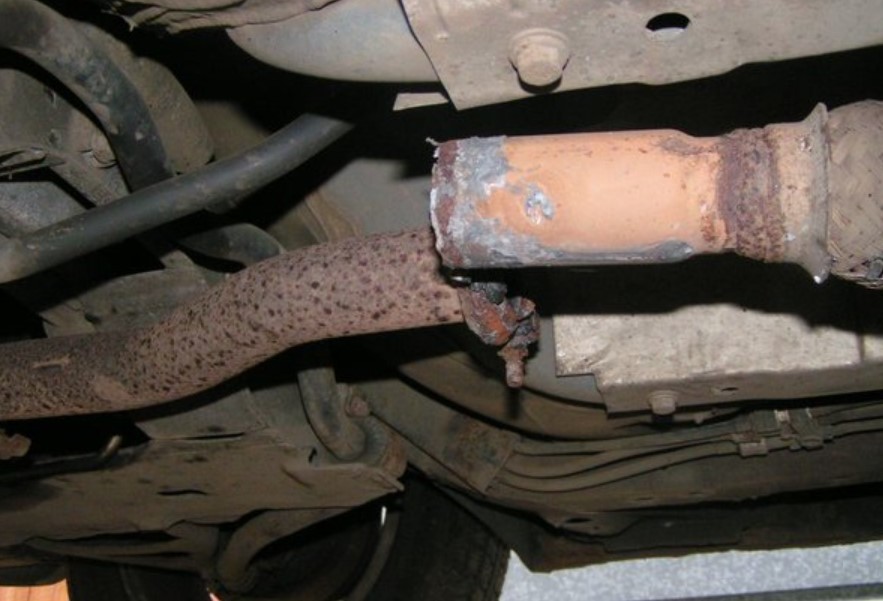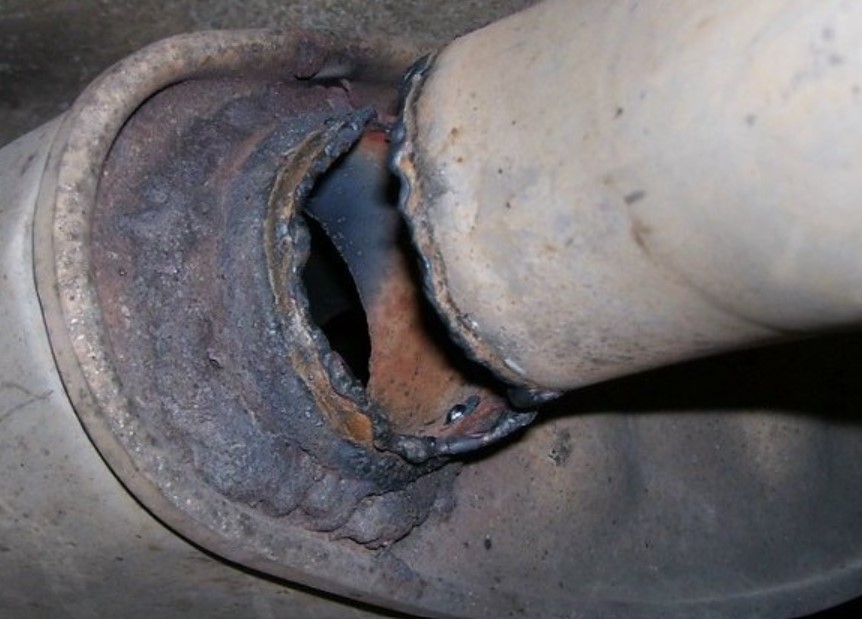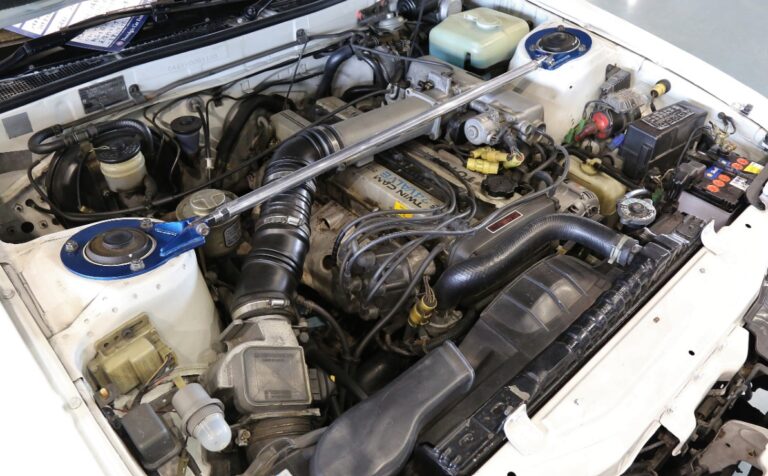Is It Bad To Run An Engine Without Exhaust? [Answered]
Are you looking for Is It Bad To Run An Engine Without Exhaust? Running an engine without an exhaust might seem like a minor issue, but it can have significant implications. This topic raises questions about the safety, performance, and legal aspects of operating vehicles in this condition.
Key Takeaways
- Safety Risks: Increased carbon monoxide exposure and potential fire hazards.
- Performance Impact: Decreased engine efficiency and potential damage.
- Legal Consequences: Violations of noise and emission regulations.
- Environmental Concerns: Higher emissions, contributing to pollution.
- Cost Implications: Potential for expensive repairs and fines.
Is It Bad To Run An Engine Without Exhaust?
Yes, it is bad to run an engine without an exhaust system. The exhaust system plays a crucial role in safely expelling combustion gases away from the engine and vehicle occupants. Running an engine without it poses safety risks, affects performance, and can lead to legal issues.

Safety Concerns
Without an exhaust, toxic gases like carbon monoxide can enter the vehicle’s cabin, posing serious health risks. The absence of exhaust also increases the risk of fires, as hot gases and sparks can come into contact with flammable materials.
Toxic Gas Exposure
Running an engine without an exhaust increases the risk of carbon monoxide poisoning. This colorless, odorless gas can be fatal in high concentrations.
Fire Hazards
Hot exhaust gases and sparks can ignite flammable materials under the vehicle, leading to potentially catastrophic fires.
Performance Impact
An exhaust system is essential for optimal engine performance. Its absence can lead to decreased efficiency and potential engine damage.
Engine Efficiency
The back pressure created by the exhaust system is necessary for the engine’s proper functioning. Without it, the engine can suffer from reduced power and efficiency.
Potential Engine Damage
Running without an exhaust can cause overheating and increased wear on engine components, potentially leading to costly repairs.
Legal and Environmental Implications
Operating a vehicle without an exhaust system can result in legal penalties and contribute to environmental pollution.

Noise Pollution
Excessive noise from an engine running without an exhaust can lead to fines and legal issues, as it violates most local noise ordinances.
Emission Violations
Exhaust systems help reduce harmful emissions. Without it, vehicles emit pollutants at higher levels, violating environmental laws.
Cost Implications
The cost of running an engine without an exhaust extends beyond potential fines. It can lead to expensive repairs and decreased vehicle value.
Repair Costs
Damage to the engine and other components caused by the absence of an exhaust system can lead to high repair costs.
Fines and Penalties
Violating noise and emission regulations can result in fines and legal repercussions.
What Happens If You Run An Engine Without An Exhaust?
Running an engine without an exhaust system has several immediate and long-term effects. Firstly, the engine will be significantly louder due to the absence of the muffler and exhaust pipes that normally dampen the sound.

Secondly, there’s a risk of toxic gases like carbon monoxide entering the vehicle’s cabin, posing a severe health hazard. The engine will also lose back pressure, which is essential for its efficient operation, leading to reduced performance and potential damage over time.
Additionally, the intense heat from the unmitigated exhaust gases can damage vehicle components and pose a fire hazard.
Will Running No Muffler Hurt My Engine?
Running an engine without a muffler won’t immediately damage the engine, but it can lead to problems over time. The muffler’s primary function is to reduce noise, but it also contributes to maintaining the proper back pressure in the exhaust system.
Without a muffler, the engine might run less efficiently, potentially affecting fuel economy and overall performance. In some cases, the lack of back pressure can lead to an imbalance in the exhaust system, causing undue stress on the engine valves and exhaust manifold, which can lead to premature wear or failure.
What Happens If You Block Exhaust Pipe While Engine Running?
Blocking the exhaust pipe while the engine is running can have severe consequences. When the exhaust gases are blocked, they can’t exit the system, leading to increased pressure in the exhaust manifold and engine.
This can cause a range of problems, including reduced engine performance, overheating, and potential damage to the exhaust manifold and valves. Additionally, there’s a risk of dangerous gases like carbon monoxide building up within the vehicle, posing a significant health hazard to the occupants.
How Bad Is It For My Engine To Drive Without Exhaust?
Driving without an exhaust system is detrimental to your engine. The exhaust system, including the muffler and tailpipe, is crucial for directing harmful gases away from the engine and cabin, reducing noise, and ensuring optimal engine performance.

Without it, the engine will run inefficiently, possibly leading to increased fuel consumption and reduced power. Over time, the lack of an exhaust system can contribute to overheating and increased wear on engine components. Additionally, the environmental impact is significant, as the exhaust system plays a critical role in reducing emissions.
Conclusion
Running an engine without an exhaust is clearly detrimental. It poses serious safety risks, impacts performance, leads to legal issues, harms the environment, and incurs additional costs.
It’s essential to maintain a functioning exhaust system to ensure the safety, efficiency, and legal compliance of your vehicle. Remember, the cost of fixing a damaged exhaust is far less than the potential risks and expenses of running without one.
People Also Ask
Can I install a makeshift exhaust to mitigate these issues?
While a makeshift solution might reduce some risks, it is unlikely to be as effective as a professionally designed and installed exhaust system. It’s best to repair or replace a damaged exhaust system with a proper one to ensure safety and compliance with legal standards.
How does the absence of an exhaust affect the engine’s back pressure?
The exhaust system creates a controlled back pressure, which is crucial for the efficient operation of the engine. Without it, the engine can experience reduced power and efficiency, and in some cases, damage to the exhaust valves.
What are the risks of fire when running an engine without an exhaust?
The risks are heightened due to hot gases and sparks that can exit directly from the engine, potentially igniting flammable materials or fluids under the vehicle.
What environmental impact does running without an exhaust have?
The environmental impact is significant. The exhaust system contains components like catalytic converters that reduce harmful emissions. Without these, the vehicle emits more pollutants, contributing to air pollution.

Welcome to the exhilarating world of Matt Rex, a professional car racer turned renowned vehicle enthusiast. Immerse yourself in his captivating blog as he shares heart-pounding adventures, expert reviews, and valuable insights on cars, trucks, jets, and more. Fuel your passion for speed and discover the beauty of vehicles through Matt’s engaging stories and meticulous expertise. Join the ever-growing community of enthusiasts who find inspiration and expert advice in Matt Rex’s blog—a digital hub where the thrill of speed meets the pursuit of knowledge.







![How Long Does It Take To Remove 5.3 Engine? [Answered]](https://www.turbochaos.com/wp-content/uploads/2023/11/How-Long-Does-It-Take-To-Remove-5.3-Engine-768x519.jpg)